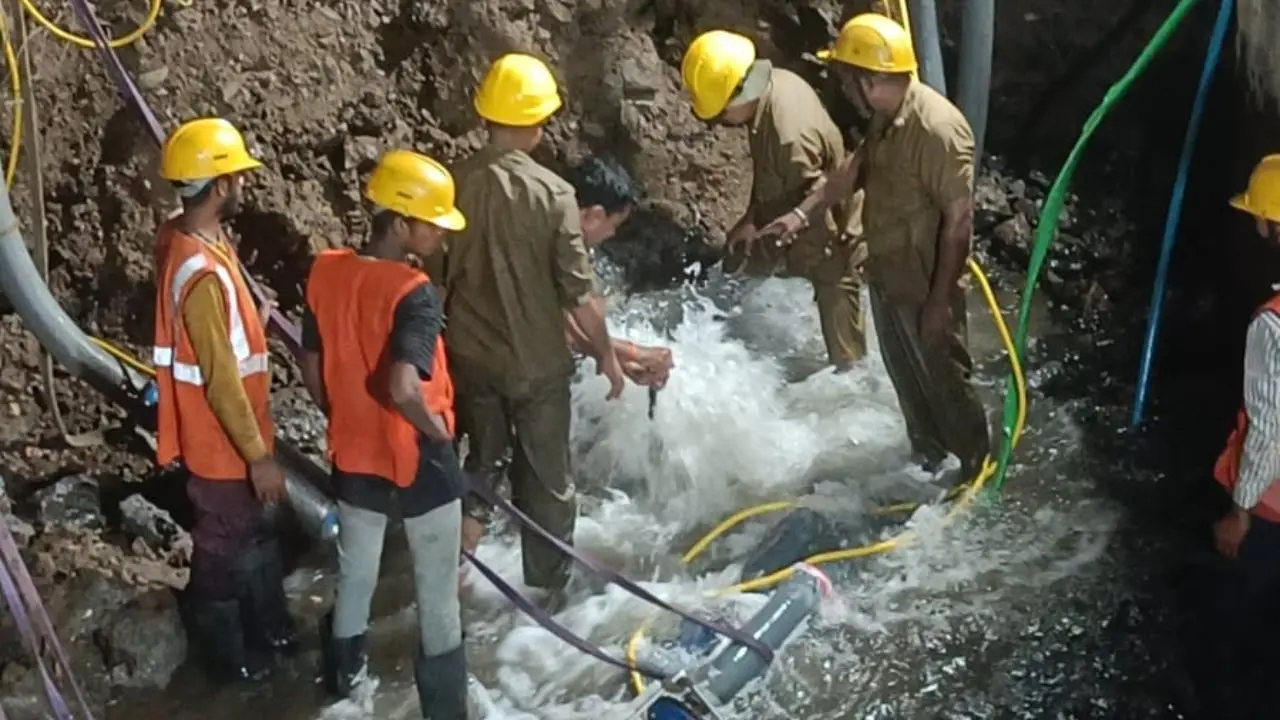Mumbai’s strained civic infrastructure faced fresh stress on Sunday as a major water supply pipeline was damaged during ongoing metro piling work, leading to disruptions across key parts of the city.
The Brihanmumbai Municipal Corporation (BMC) confirmed that the damage to a 1,200 mm pipeline—part of a central water distribution network—has impacted water supply in several wards, prompting authorities to appeal to residents for responsible usage until the issue is resolved.The disruption affects a wide swath of the city, particularly in Central Mumbai and the eastern suburbs. Areas including Wadala, Sion, Kurla, Ghatkopar, Antop Hill, Chembur, Govandi, and Mankhurd have experienced a complete or partial water supply cut. These neighbourhoods span across municipal wards F/South, F/North, L, N, M/East, and M/West, representing some of the most densely populated zones of the city.Civic engineers attributed the damage to underground infrastructure complications caused during piling operations for Mumbai’s metro rail project—one of the city’s most ambitious public transport undertakings. While the metro initiative aims to ease long-term traffic and emissions burdens, its execution has repeatedly clashed with legacy utilities and civic services.
The BMC has initiated emergency repairs but acknowledged that the scale of the damage would take time to address. In the interim, water tankers have been mobilised in some of the worst-hit locations. Civic authorities urged residents to use stored water judiciously and avoid wastage. For a city already grappling with uneven access to water resources, the latest breakdown underscores how infrastructure development without synchronised planning can result in short-term service shocks In parallel to the water supply disruption, another infrastructure-related storm is brewing in Maharashtra. A consortium of contractors is preparing to move the Bombay High Court over pending dues from the state government. With over ₹89,000 crore in unpaid bills, infrastructure developers allege the government has released just ₹4,000 crore, leaving large-scale public projects in financial limbo.
The move signals escalating tensions between the state and those responsible for executing its ambitious infrastructure roadmap—including roads, bridges, and utilities.As contractors prepare for legal confrontation and civic authorities scramble for technical fixes, Mumbai’s residents find themselves at the intersection of progress and inconvenience. The repeated conflict between infrastructural expansion and basic service continuity highlights the urgent need for better inter-agency coordination, future-proof planning, and risk mitigation during project rollouts.While the metro project holds the promise of sustainable transport in the long term, city planners and policymakers must also ensure that such growth does not come at the cost of essential public services in the short run. For now, Mumbaikars are advised to be cautious in their water usage—and patient, as the city navigates the ripple effects of rapid urban transformation.
Also Read : https://urbanacres.in/cities-eye-water-metro-for-green-mobility/
Mumbai Faces Water Cuts Amid Metro Work


